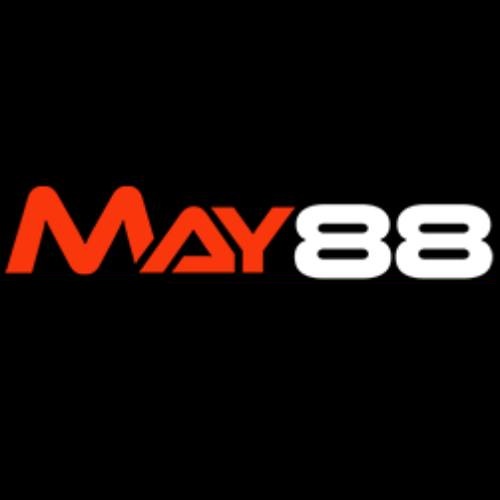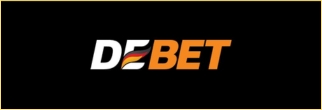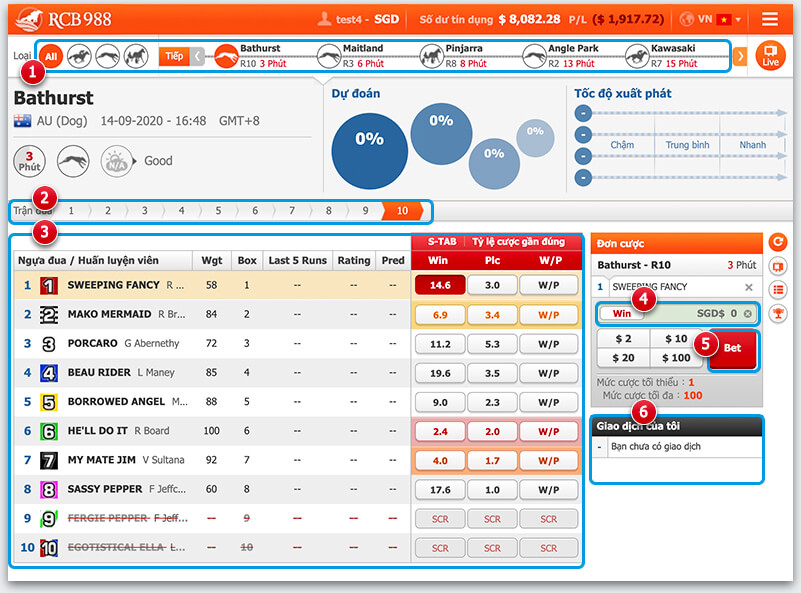TỔNG HỢP GAME HOT TẠI NHÀ CÁI SV388
Đá Gà Mỹ Tại SV388: Trò Chơi Kịch Tính Cho Người Đam Mê
Đá Gà Mỹ tại SV388, trò chơi vô cùng hấp dẫn và kịch tính dành...
Xem thêmKhám Phá Trò Chơi Roulette tại SV388 – Đỉnh Cao Giải Trí Cùng Bánh Xe May Mắn
Roulette là một trong những trò chơi nổi bật và phổ biến nhất tại SV388,...
Xem thêmĐua Ngựa SV388 – Trò Chơi Cá Cược Mang Tính Giải Trí và Thử Thách Cao
SV388 là một trong những nhà cái hàng đầu cung cấp các trò chơi cá...
Xem thêmSV388: Thiên Đường Cá Cược Trực Tuyến Hàng Đầu Hiện Nay
Với sự phát triển không ngừng, SV388 đã khẳng định vị thế của mình trên thị trường cá cược trực tuyến. SV388 sẽ giới thiệu tới bạn sức hấp dẫn của nhà cái SV388 – nơi hội tụ các tín đồ đam mê cá cược trực tuyến và muốn khám phá những cơ hội lớn.

Giới thiệu về SV388
SV388 đã trở thành một trong những nền tảng cá cược trực tuyến phổ biến nhất hiện nay, nổi bật với các tính năng độc đáo và đa dạng. Đây không chỉ là một nơi để giải trí mà còn là một không gian cho những người yêu thích cá cược có thể thỏa sức đam mê với những trận đấu kịch tính. Chúng tôi mang lại cho người chơi cơ hội tham gia vào các trò chơi hấp dẫn, từ đá gà truyền thống đến các trò chơi casino hiện đại.
Lịch Sử Hình Thành Và Sự Phát Triển Của SV388
Tập đoàn Venus Casino chuyên về giải trí cá cược online đã thành xây dựng và điều hành nhà cái SV388 vào năm 2006 với mục tiêu đem tới người dùng những trò chơi giải trí cá cược online hấp dẫn nhất. Với bề dày 20 năm hoạt động trong lĩnh vực giải trí, cá cược online tổ chức PAGOR (Philippine Amusement and Gaming Corporation) – Cơ quan cá cược uy tín quốc tế và nổi tiếng tại Philippines đã cung cấp giấy phép hoạt động cho SV388.
Qua nhiều năm, chúng tôi đã không ngừng phát triển và nâng cấp dịch vụ, tạo ra một môi trường cá cược an toàn và minh bạch. Với sự phát triển của công nghệ, SV388 đã nhanh chóng nắm bắt xu hướng và đầu tư mạnh mẽ vào việc nâng cấp giao diện, tính năng, và chất lượng dịch vụ, giúp người chơi có trải nghiệm tốt nhất.
Các Trò Chơi Hấp Dẫn Tại SV388

Một trong những yếu tố làm nên sức hút của SV388 chính là sự đa dạng trong các trò chơi. Dưới đây là một số trò chơi tiêu biểu mà bạn có thể tìm thấy trên nền tảng này:
Đá Gà Trực Tuyến
Đá gà SV388 được biết đến với dịch vụ đá gà trực tuyến, cho phép người chơi theo dõi và đặt cược vào các trận đấu gà diễn ra trên toàn cầu. Các trận đấu được truyền hình trực tiếp với chất lượng cao, mang lại cho người chơi cảm giác hồi hộp như đang có mặt tại trường đấu.
Casino Trực Tuyến
Bên cạnh đá gà, Casino SV388 còn cung cấp nhiều trò chơi casino trực tuyến như Baccarat, Roulette, Poker và Dragon Tiger. Các trò chơi này không chỉ đòi hỏi kỹ năng mà còn mang lại cơ hội thắng lớn cho người chơi.
Slot Game
SV388 cung cấp hàng trăm trò chơi slot với nhiều chủ đề khác nhau, từ những câu chuyện cổ tích đến những bộ phim bom tấn. Các trò chơi này thường có tính năng thưởng phong phú và tỷ lệ trả thưởng cao, làm cho chúng trở thành lựa chọn yêu thích của nhiều người chơi.
Cá Cược Thể Thao
Cá cược thể thao cũng là một phần không thể thiếu trên SV388. Người chơi có thể đặt cược vào các môn thể thao phổ biến như bóng rổ, bóng đá, quần vợt và nhiều môn khác. Thể thao SV388 cung cấp tỷ lệ cược hấp dẫn và nhiều loại kèo khác nhau, giúp người chơi có nhiều lựa chọn hơn khi tham gia cá cược.
Ưu Điểm Vượt Trội Của SV388
SV388 đã chiếm được lòng tin của người chơi nhờ những ưu điểm vượt trội, làm cho nền tảng này trở thành lựa chọn ưu tiên của những người đam mê cá cược trực tuyến.

Giao Diện Thân Thiện và Dễ Sử Dụng
Giao diện của SV388 được thiết kế đơn giản, trực quan, giúp người chơi dễ dàng tìm kiếm và truy cập vào các trò chơi mà mình yêu thích. Màu sắc hài hòa và bố cục hợp lý mang lại trải nghiệm thị giác thoải mái, không gây mỏi mắt khi chơi trong thời gian dài.
An Toàn và Bảo Mật
Chúng tôi cam kết bảo vệ thông tin cá nhân của người chơi bằng các công nghệ bảo mật tiên tiến nhất. Công nghệ mã hóa SSL được sử dụng nhằm đảm bảo rằng tất cả các giao dịch và dữ liệu cá nhân đều được bảo vệ an toàn, tránh các nguy cơ bị tấn công hay đánh cắp thông tin.
Hỗ Trợ Khách Hàng SV388 Tận Tâm, Nhiệt Tình
Đội ngũ hỗ trợ khách hàng của SV388 luôn sẵn sàng 24/7 để giải đáp mọi thắc mắc của người chơi. Bất kể bạn gặp khó khăn với việc đăng ký tài khoản, nạp tiền, rút tiền hay bất kỳ vấn đề nào khác, đội ngũ này sẽ hỗ trợ bạn một cách nhanh chóng và chuyên nghiệp.
Tính Năng Nạp và Rút Tiền Linh Hoạt, Đơn Giản
Nhà cái SV388 hỗ trợ nhiều phương thức nạp và rút tiền, từ thẻ ngân hàng, ví điện tử đến các dịch vụ thanh toán trực tuyến phổ biến. Các giao dịch được xử lý nhanh chóng và minh bạch, giúp người chơi yên tâm hơn khi tham gia cá cược.
Khuyến Mãi Hấp Dẫn
Một trong những lý do khiến SV388 thu hút được nhiều người chơi chính là các chương trình khuyến mãi hấp dẫn. Từ các ưu đãi cho người chơi mới đến các chương trình thưởng dành cho thành viên trung thành, SV388 luôn có những ưu đãi đặc biệt giúp người chơi có thêm cơ hội gia tăng lợi nhuận.
Tỷ Lệ Thắng Cao
Chúng tôi mang đến cho người chơi nhiều cơ hội chiến thắng với tỷ lệ cược hấp dẫn và các trò chơi có tỷ lệ trả thưởng cao. Điều này không chỉ tạo động lực cho người chơi tham gia mà còn giúp họ cảm thấy hứng thú hơn với mỗi lần đặt cược.
Hướng Dẫn Đăng Ký Tài Khoản Tại SV388

Bước 1: Đăng Ký Tài Khoản
Quá trình đăng ký tài khoản trên SV388 rất đơn giản và nhanh chóng. Người chơi chỉ cần đăng nhập vào link đăng ký sv388 cung cấp các thông tin cơ bản như họ tên, số điện thoại, địa chỉ email và tạo mật khẩu. Sau khi hoàn tất các bước đăng ký, bạn sẽ nhận được một email xác nhận để kích hoạt tài khoản của mình.
Bước 2: Nạp Tiền Vào Tài Khoản
Khi đã đăng ký thành công, người chơi có thể thực hiện đăng nhập sv388 và bắt đầu tiến hành nạp tiền. SV388 hỗ trợ nhiều phương thức nạp tiền như chuyển khoản ngân hàng, ví điện tử và các dịch vụ thanh toán trực tuyến khác.
Bước 3: Tham Gia Các Trò Chơi
Với số tiền đã nạp, bạn có thể tự do tham gia vào bất kỳ trò chơi nào trên link truy cập SV388. Hãy thử sức với đá gà, casino trực tuyến hoặc các trò chơi slot để tận hưởng những giây phút giải trí thú vị và cơ hội thắng lớn.
Những Chiến Lược Chiến Thắng Tại SV388

Để tăng cơ hội chiến thắng khi tham gia cá cược tại SV388, người chơi cần phải nắm vững một số chiến lược cơ bản:
Quản Lý Ngân Sách
Quản lý ngân sách là yếu tố then chốt trong việc duy trì khả năng chơi lâu dài. Bạn nên đặt ra một ngân sách cụ thể cho mỗi ngày hoặc mỗi tuần và tuyệt đối không vượt quá giới hạn này. Điều này sẽ giúp bạn tránh rơi vào tình trạng chơi quá mức và bảo vệ tài chính của mình.
Tìm Hiểu Luật Chơi
Trước khi tham gia bất kỳ trò chơi nào, hãy chắc chắn rằng bạn đã nắm rõ luật chơi và hiểu cách thức hoạt động của nó. Điều này không chỉ giúp bạn chơi một cách tự tin hơn mà còn giảm thiểu rủi ro thua lỗ.
Sử Dụng Chiến Lược Cược
Mỗi trò chơi đều có những chiến lược cược riêng, chẳng hạn như Martingale trong Roulette hoặc chiến lược Flat Betting trong Baccarat. Hãy tìm hiểu và áp dụng những chiến lược này để tối ưu hóa cơ hội chiến thắng của bạn.
Kiểm Soát Tâm Lý
Tâm lý là một trong những yếu tố quan trọng trong cá cược. Hãy luôn giữ cho mình một tinh thần thoải mái và không nên để cảm xúc chi phối quyết định của mình. Việc kiểm soát tâm lý giúp bạn đưa ra những quyết định sáng suốt hơn trong quá trình chơi.
Chương Trình Khuyến Mãi SV388 Hấp Dẫn
Chúng tôi thường xuyên cập nhật các chương trình khuyến mãi hấp dẫn dành cho người chơi mới và cả những thành viên lâu năm. Cùng tìm hiểu một số chương trình khuyến mãi đặc biệt mà bạn có thể tham gia:
Thưởng Chào Mừng
Người chơi mới khi đăng ký tài khoản tại SV388 sẽ nhận được phần thưởng chào mừng hấp dẫn. Phần thưởng này có thể là tiền mặt hoặc các vòng quay miễn phí trong trò chơi slot.
Thưởng Nạp Lại
Để khuyến khích người chơi nạp thêm tiền vào tài khoản, SV388 thường đưa ra các chương trình thưởng nạp lại. Bạn sẽ nhận được thêm phần trăm tiền thưởng dựa trên số tiền bạn nạp vào tài khoản.
Thưởng Hoàn Trả
Để giảm thiểu rủi ro cho người chơi, SV388 cung cấp chương trình thưởng hoàn trả. Nếu bạn gặp thua lỗ trong một khoảng thời gian nhất định, SV388 sẽ hoàn trả một phần số tiền bạn đã mất.
Tính Minh Bạch và Uy Tín Của SV388
Nhà cái SV388 cam kết mang lại một môi trường cá cược minh bạch và công bằng cho tất cả người chơi. Tất cả các trò chơi trên nền tảng đều được kiểm tra và giám sát chặt chẽ để đảm bảo tính ngẫu nhiên và không có bất kỳ yếu tố gian lận nào can thiệp vào kết quả của trò chơi. Hơn nữa, SV388 cũng tuân thủ các quy định nghiêm ngặt về bảo mật thông tin và tài chính, giúp người chơi hoàn toàn yên tâm khi tham gia.
Những Lưu Ý Khi Tham Gia Cá Cược Tại SV388
Mặc dù SV388 là một nền tảng cá cược trực tuyến uy tín và an toàn, người chơi vẫn cần lưu ý một số điểm quan trọng để đảm bảo trải nghiệm tốt nhất và tránh gặp phải rủi ro không mong muốn.

Chọn Trò Chơi Phù Hợp
Mỗi người chơi có sở thích và kỹ năng khác nhau, do đó việc lựa chọn trò chơi phù hợp với mình là rất quan trọng. Nếu bạn là người mới bắt đầu, nên thử các trò chơi đơn giản như slot game trước khi thử sức với các trò chơi phức tạp hơn như Poker hay Baccarat.
Không Chơi Quá Sức
Cá cược là hình thức giải trí, nhưng nếu không kiểm soát tốt, nó có thể dẫn đến những hậu quả tài chính nghiêm trọng. Hãy đặt ra giới hạn cá cược cho mình và tuyệt đối tuân thủ nó. Không bao giờ nên mạo hiểm vượt quá khả năng tài chính của bản thân.
Tìm Hiểu Kỹ Về Các Điều Khoản Và Điều Kiện
Trước khi tham gia vào các chương trình khuyến mãi hoặc trò chơi, hãy đảm bảo bạn đã đọc kỹ các điều khoản và điều kiện của SV388. Điều này giúp bạn hiểu rõ quyền lợi của mình và tránh các tranh chấp không đáng có.
SV388 xứng đáng là lựa chọn hàng đầu cho những người yêu thích cá cược trực tuyến, mang lại cho người chơi không chỉ là sự giải trí mà còn là những cơ hội thắng lớn. Đăng ký ngay để nhận nhiều ưu đãi hấp dẫn.























